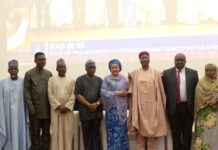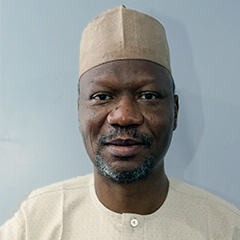
Stakeholders in Jema’a Local Government Area of Kaduna State have lauded two organisations for equipping them with skills to mitigate conflict in their communities.
The organisations are the Pentecostal Fellowship of Nigeria (PFN) and the United States Agency for International Development (USAID).
They gave the commendation at a community dialogue in Kafanchan, headquarters of Jema’a LGA.
The News Agency of Nigeria (NAN) reports that USAID in partnership with the PFN launched a programme in 2020 tagged “supporting religious freedom in local communities’’.
The programme is being implemented in Bokkos Local Government Area of Plateau State and in Jema’a, Kaura and Kachia local government areas of Kaduna State.
Speaking during the dialogue, Rev. Paul Anya, Vice Chairman, Christian Association of Nigeria (CAN), Jema’a chapter, said USAID’s intervention had helped to strengthen the rapport between Christian and Muslim leaders in the area.
Anya noted that the peace being enjoyed in Jema’a, and its environs could be attributed to the peace building efforts of USAID and other partners.
Also, Isah Abbas, the Public Relations Officer of Jama’atu Natul Islam (JNI) in Jema’a, said the programme had unified the youths in the area.
According to him, it contributes to peaceful conduct of recent local council election in the area.
Abbas said that he realised through the programme the need to put humanity first and above all other considerations when relating with other people.
The District Head of Gabbas, Usman Ibrahim, thanked USAID for training 100 youths and women on entrepreneurial skills.
Ibrahim said the gesture would go a long way in making them useful and productive to themselves and the larger society.
Other participants, who spoke, said they had gained vital knowledge and pledged to educate others.
Earlier, the programme manager, Dr Phillip Hayab, said its emphasis was to involve stakeholders in dialogue towards finding homegrown solutions to conflicts linked to religious differences.
“The programme engages stakeholders towards finding home-based methods in ending incessant hostility.
“Thus, the programme delivers training on early warning signs, raises awareness on the roles of the stakeholders in mitigating conflict.
“It also advocates for peaceful resolution of any disputes connected to religious provoked conflicts,’’ he added.
Hayap appealed to the participants to make the most of the skills learnt for rebuilding the culture of peace among diverse groups.(NAN)



